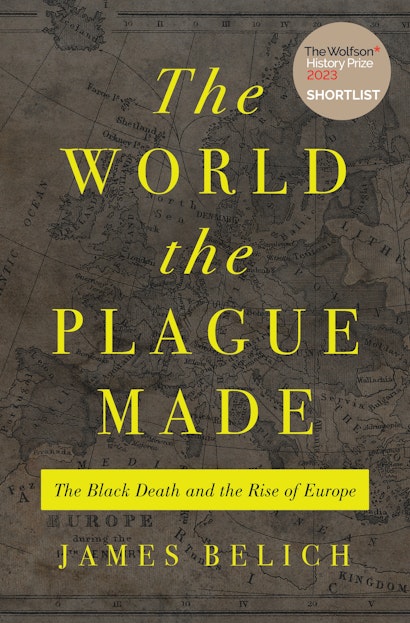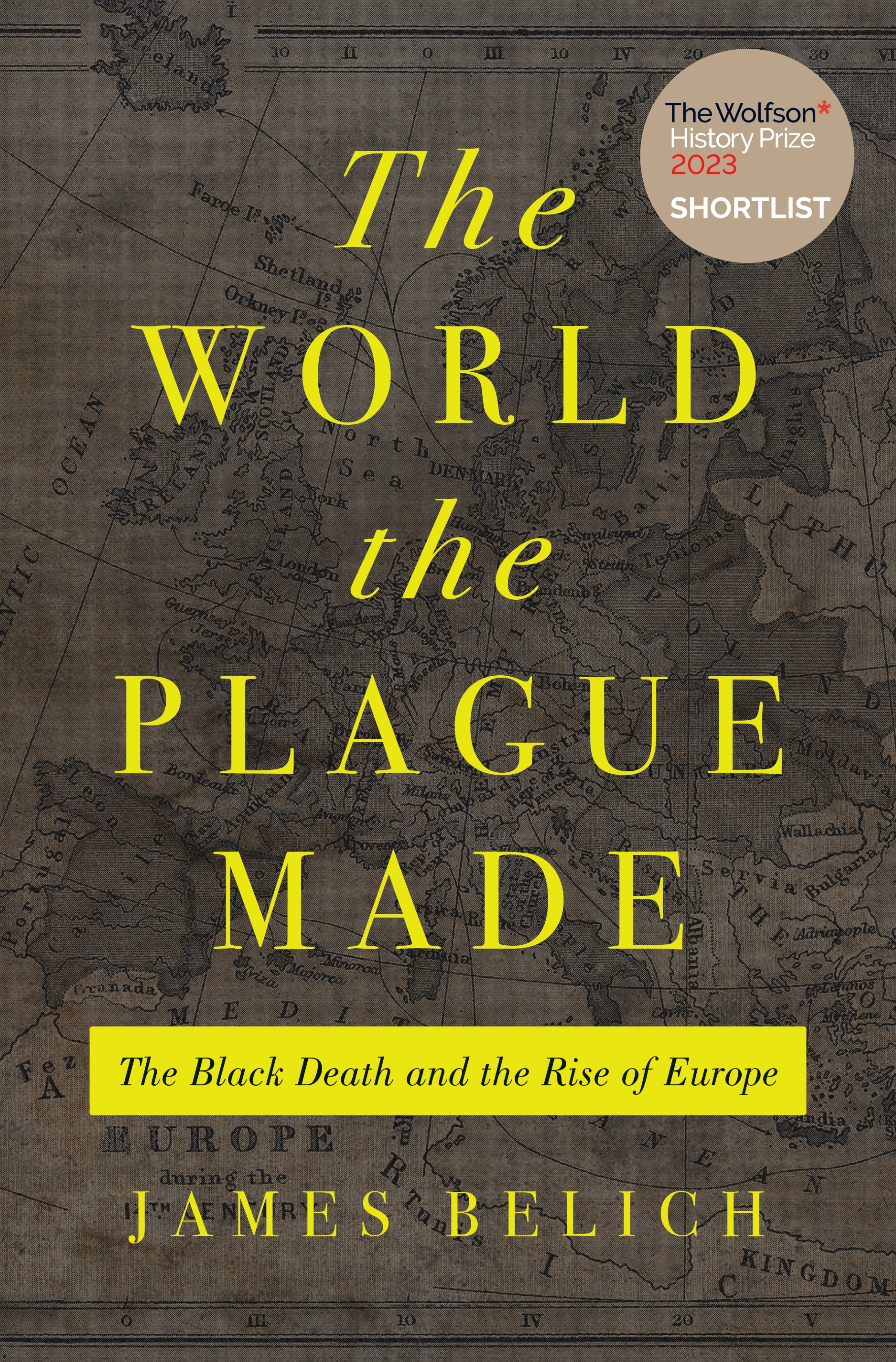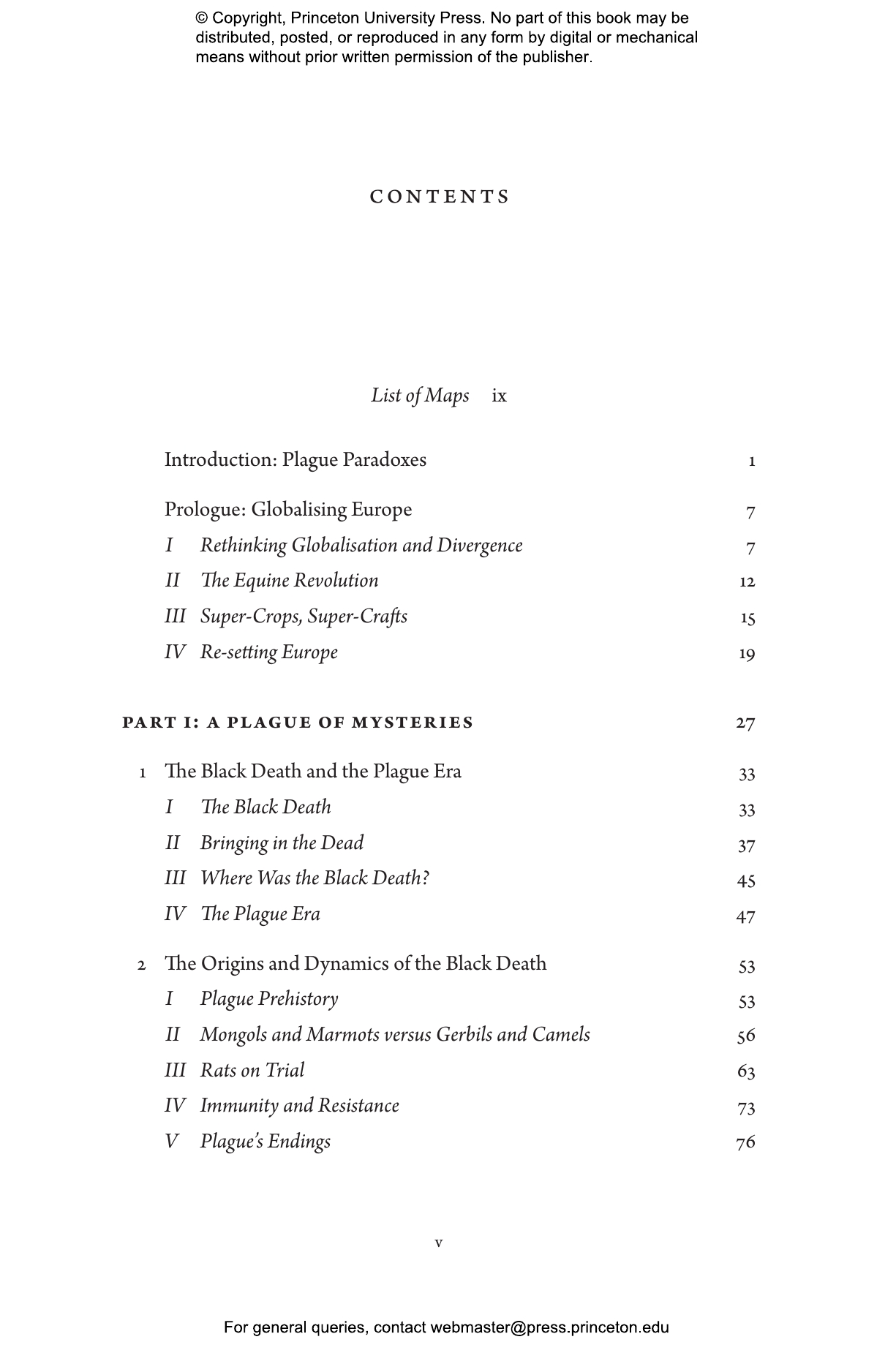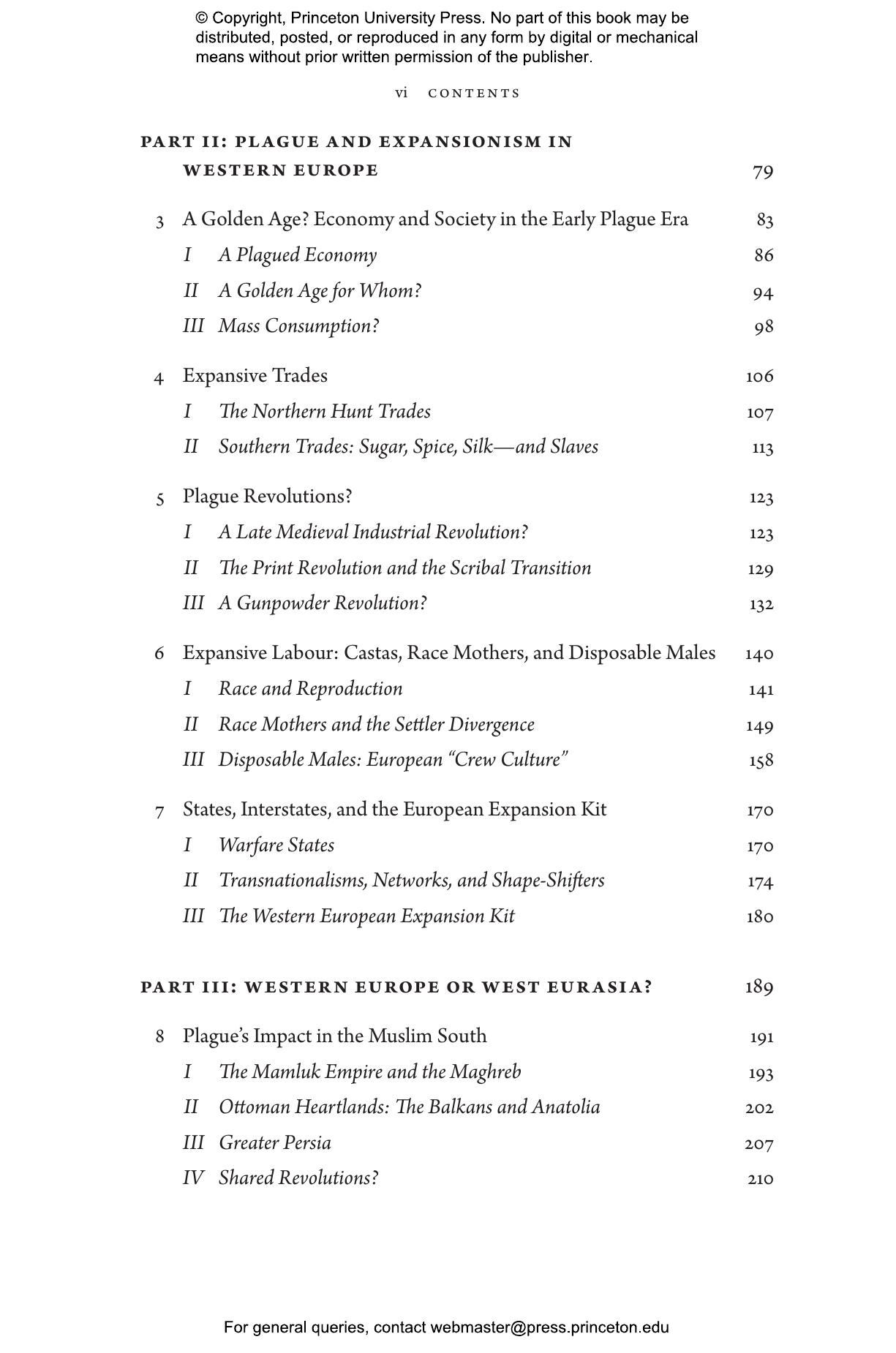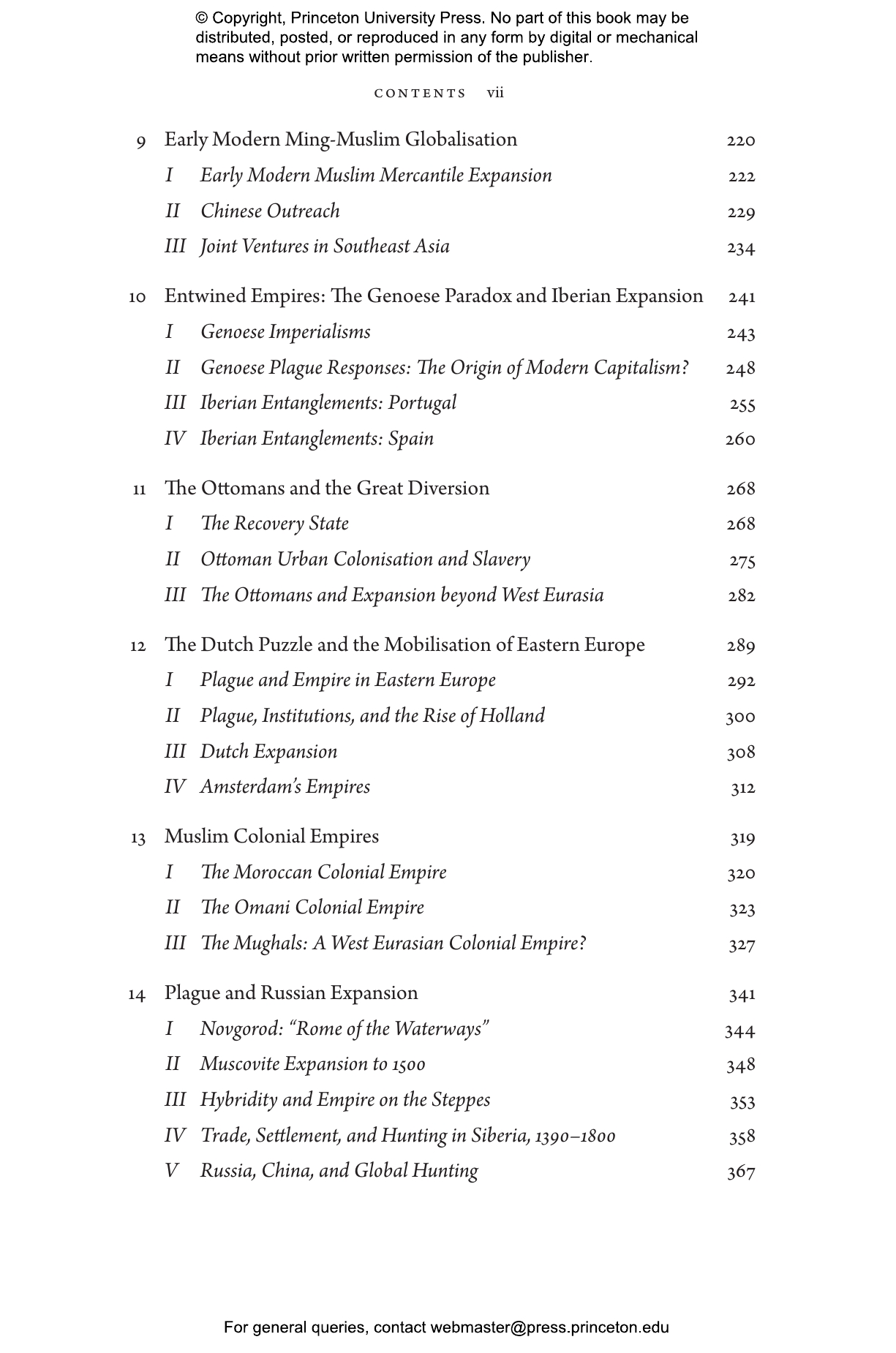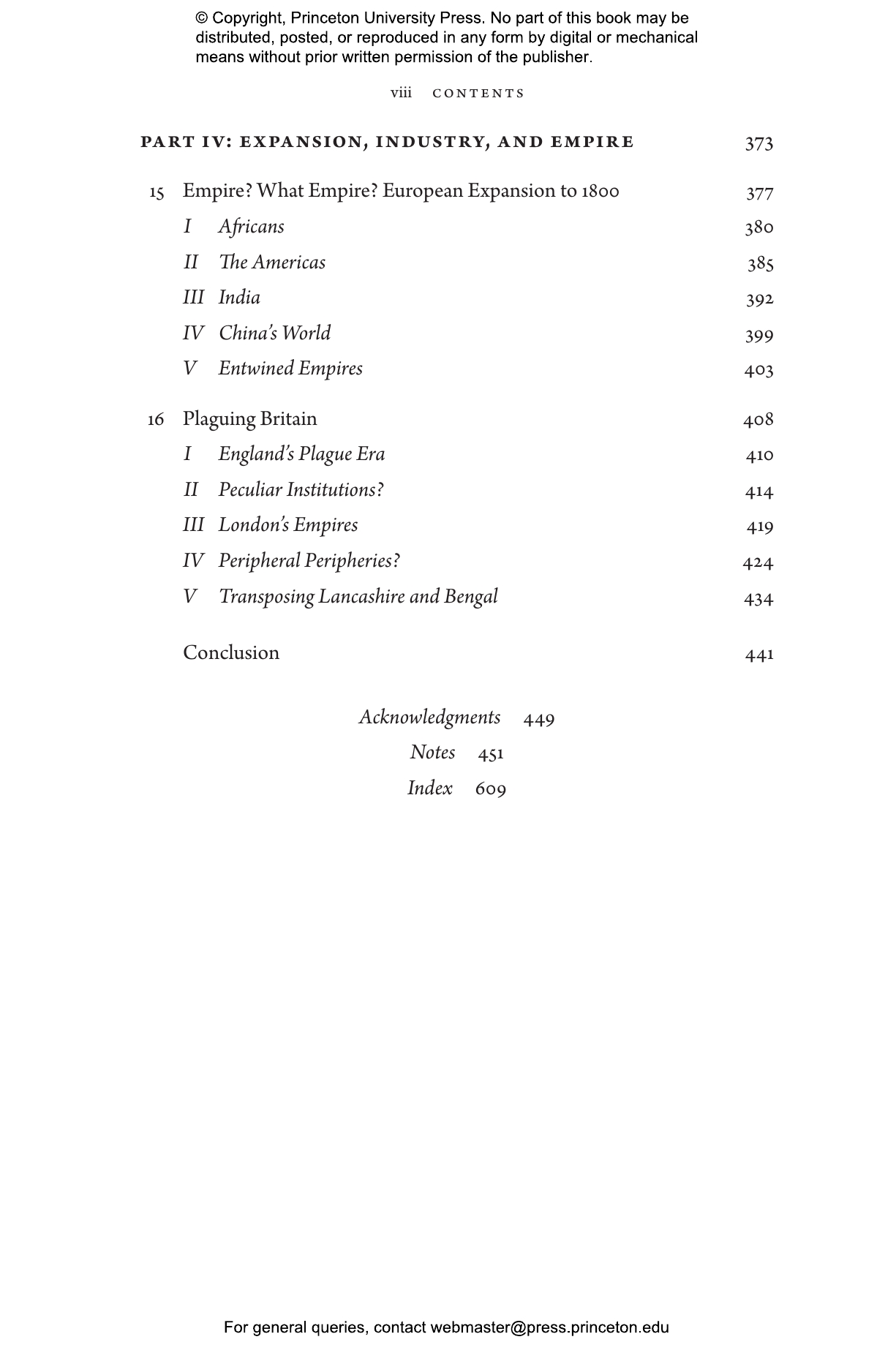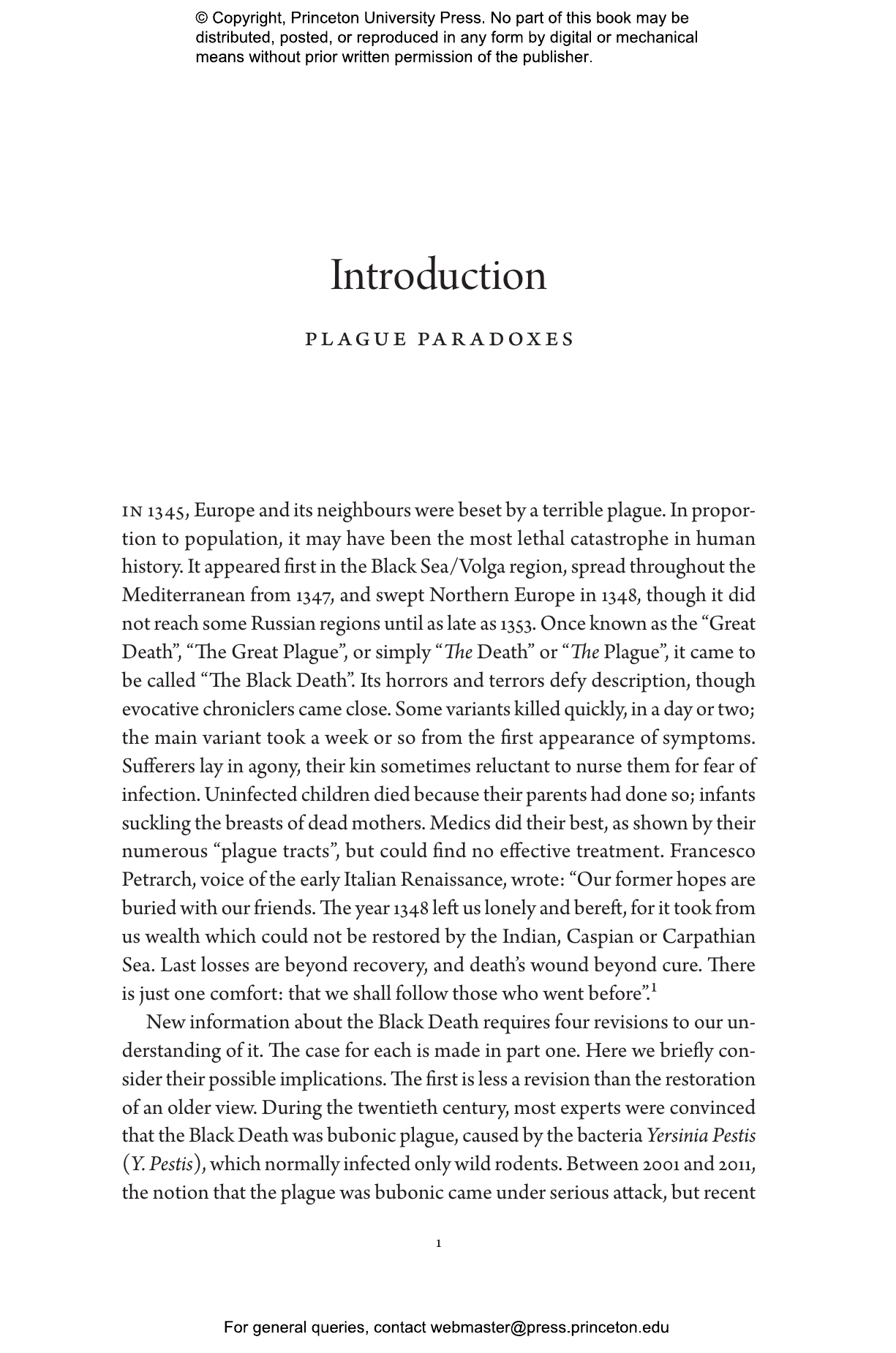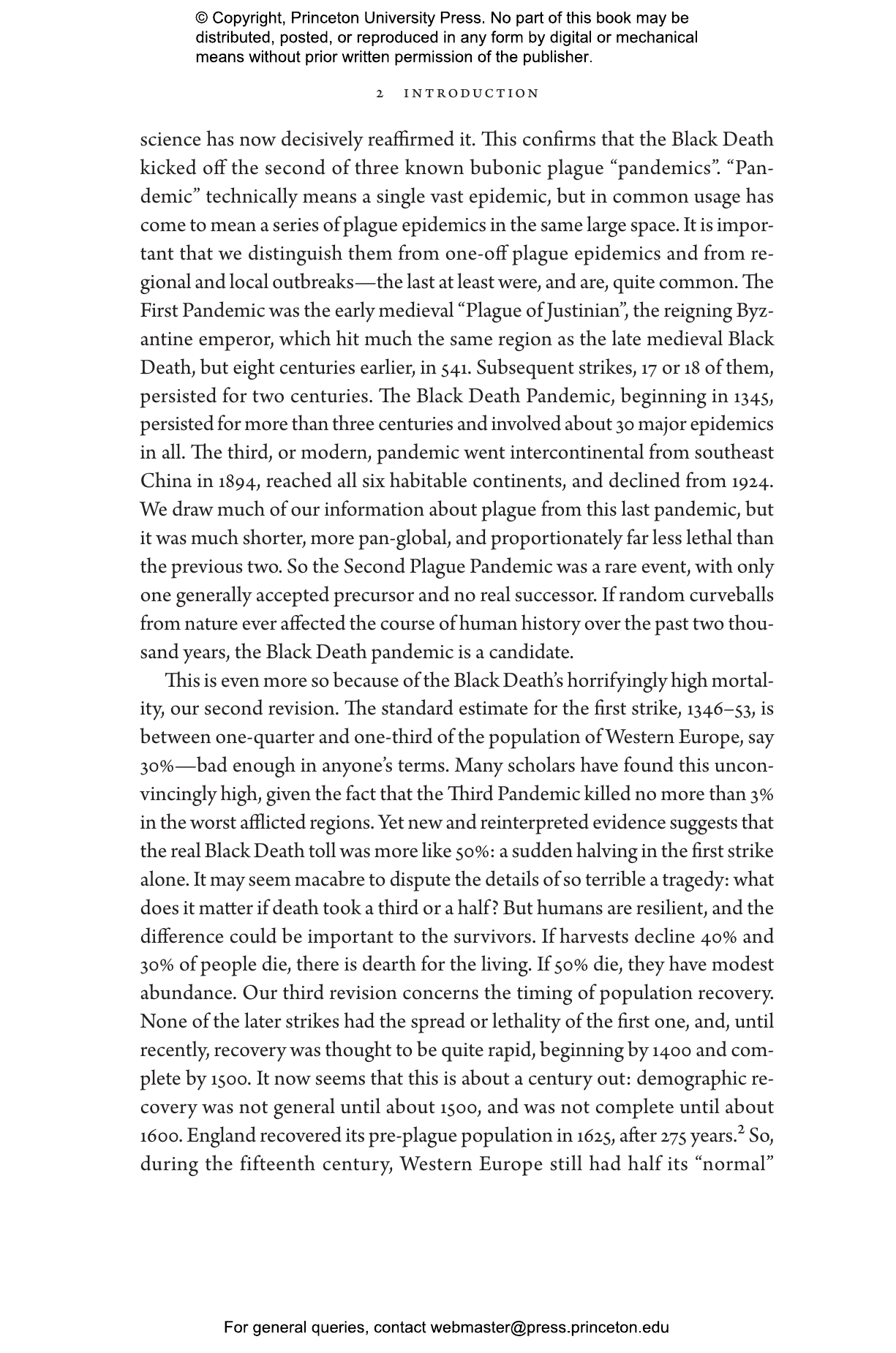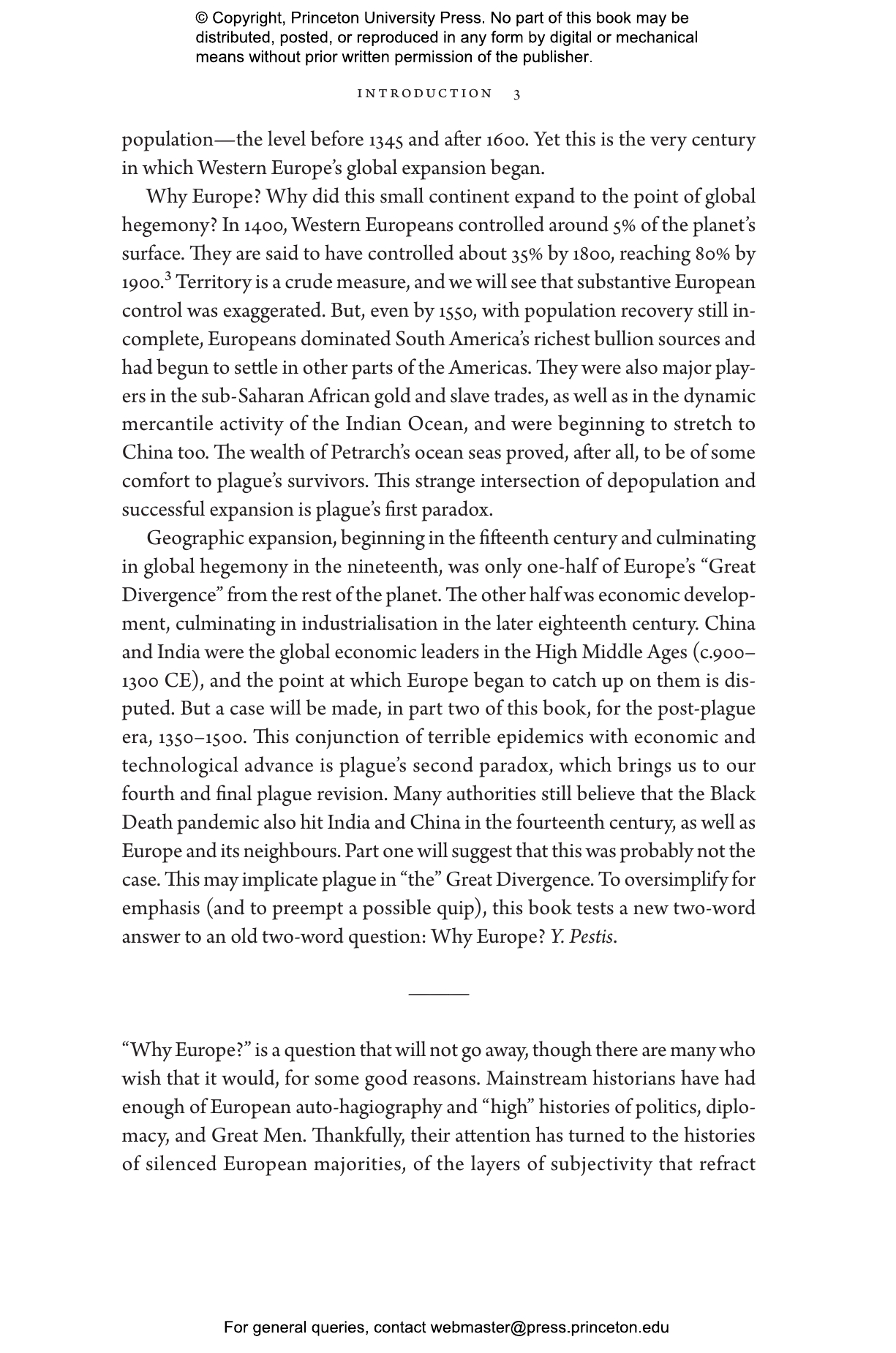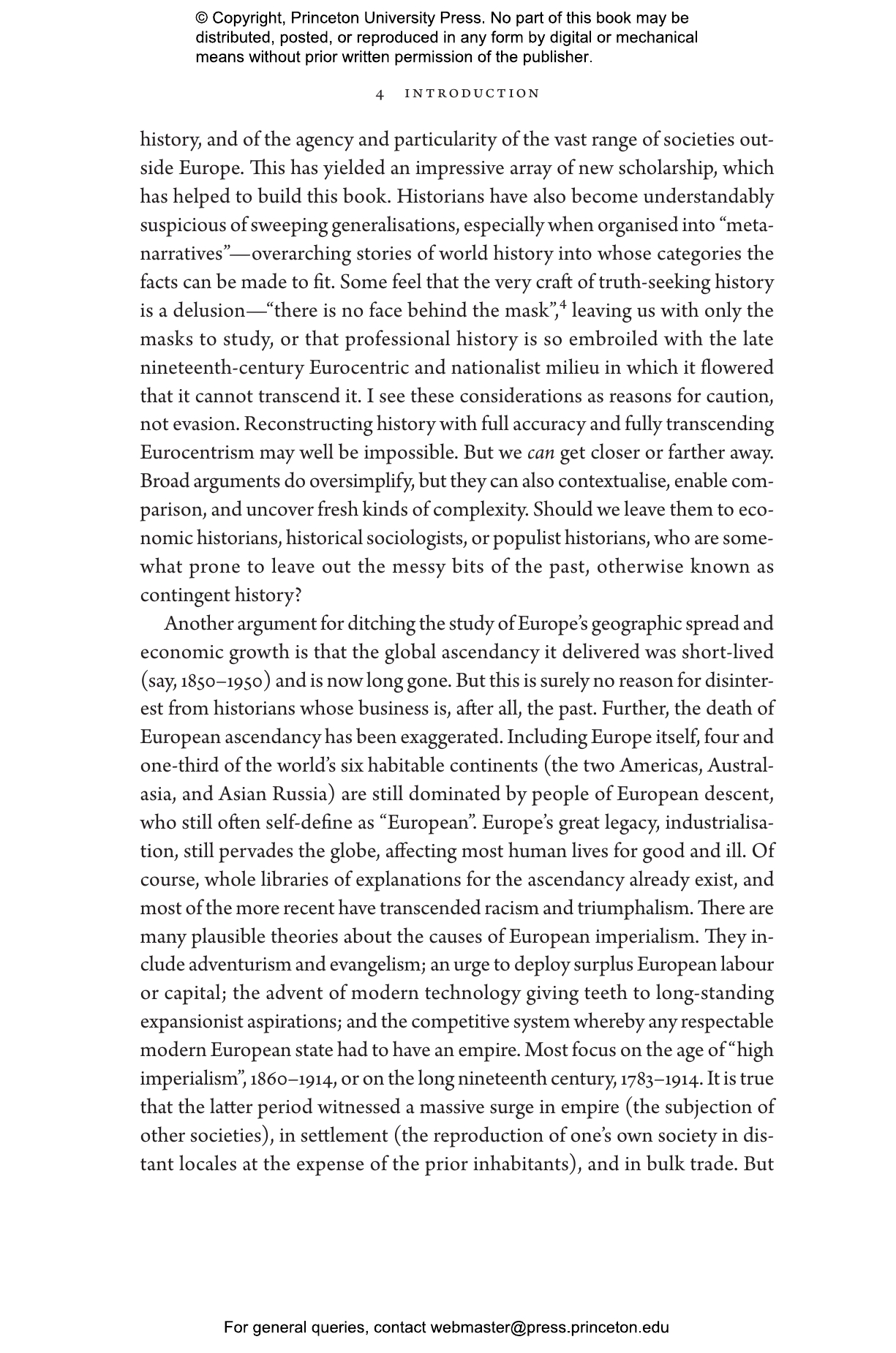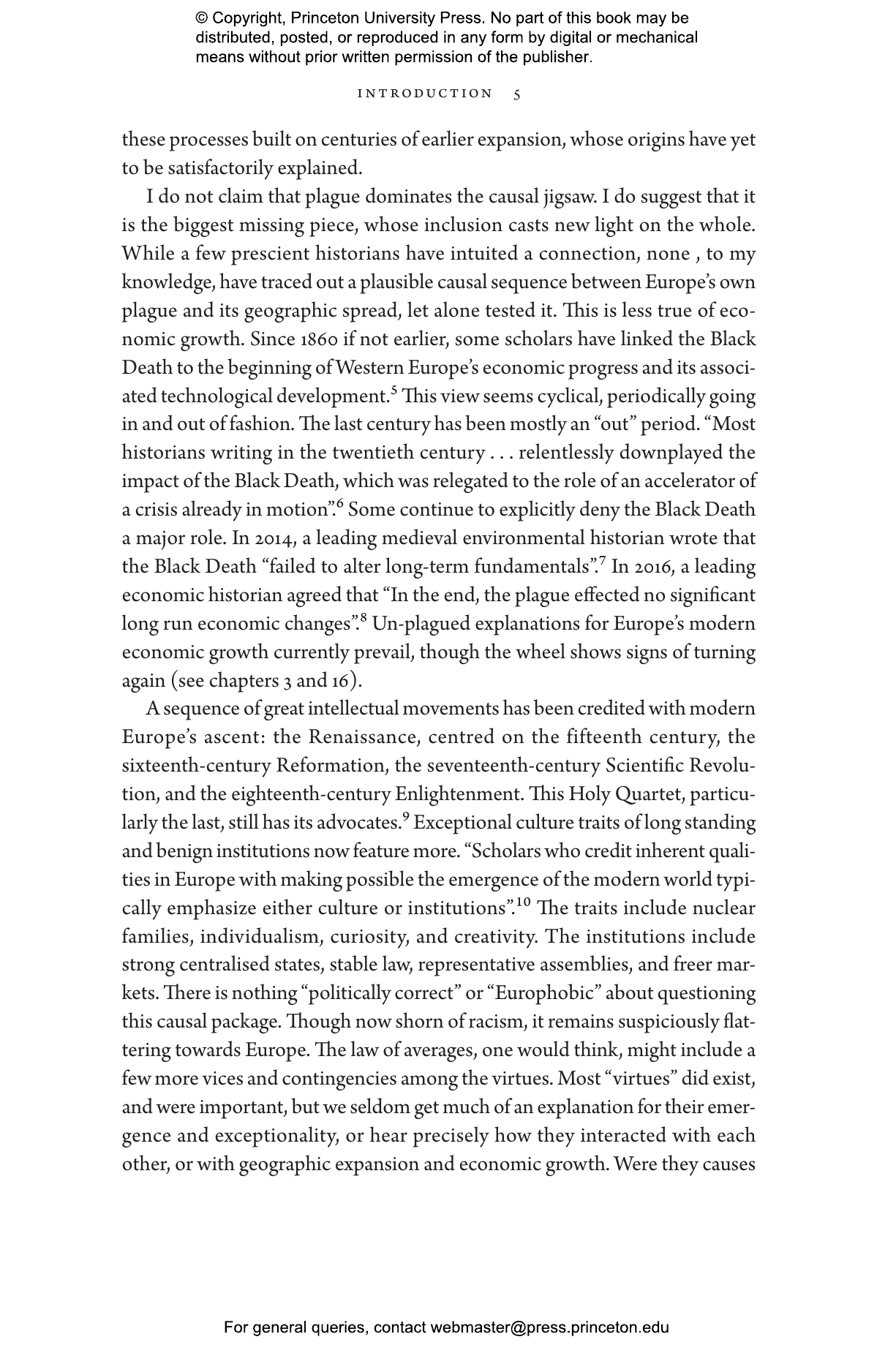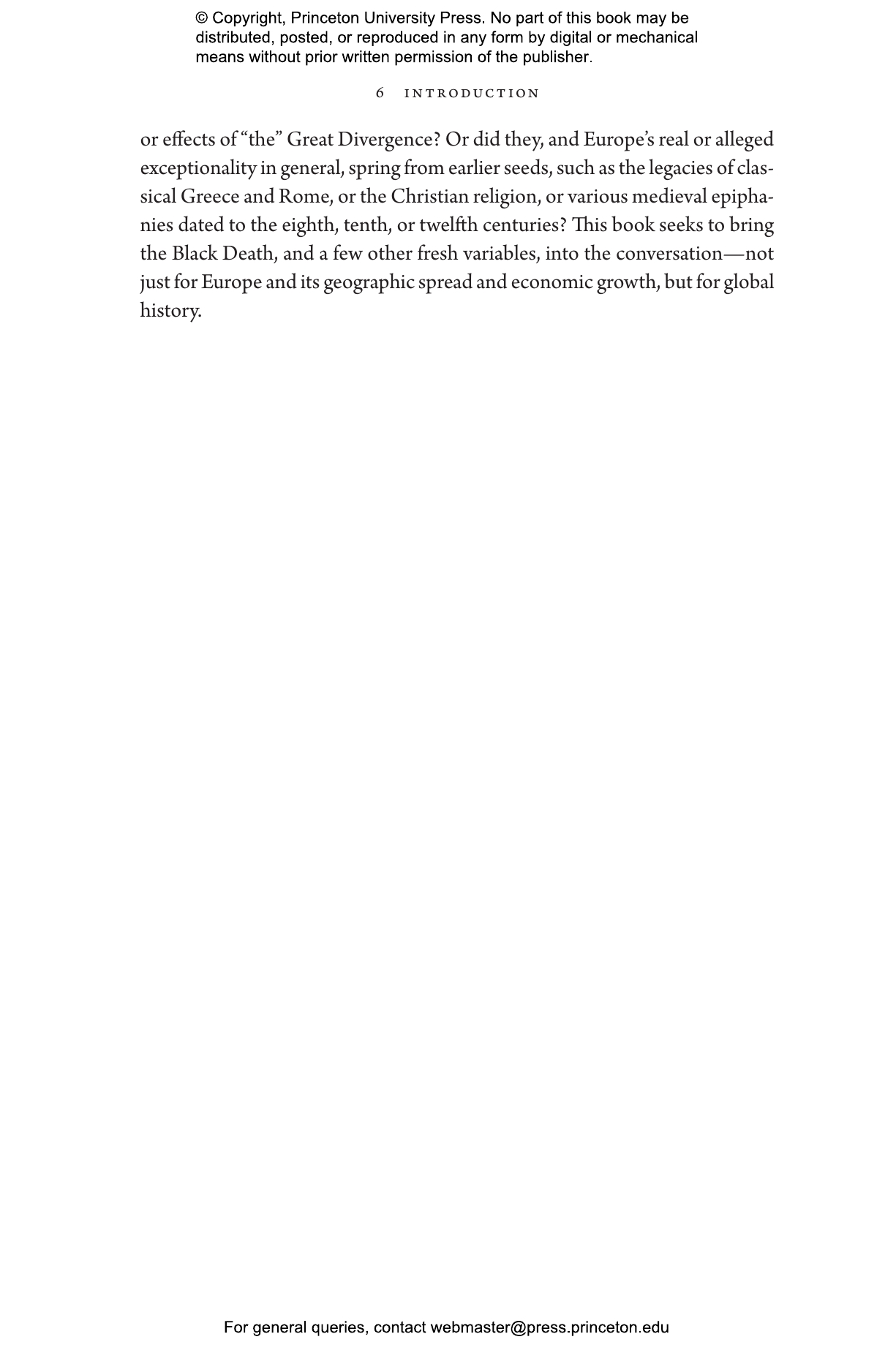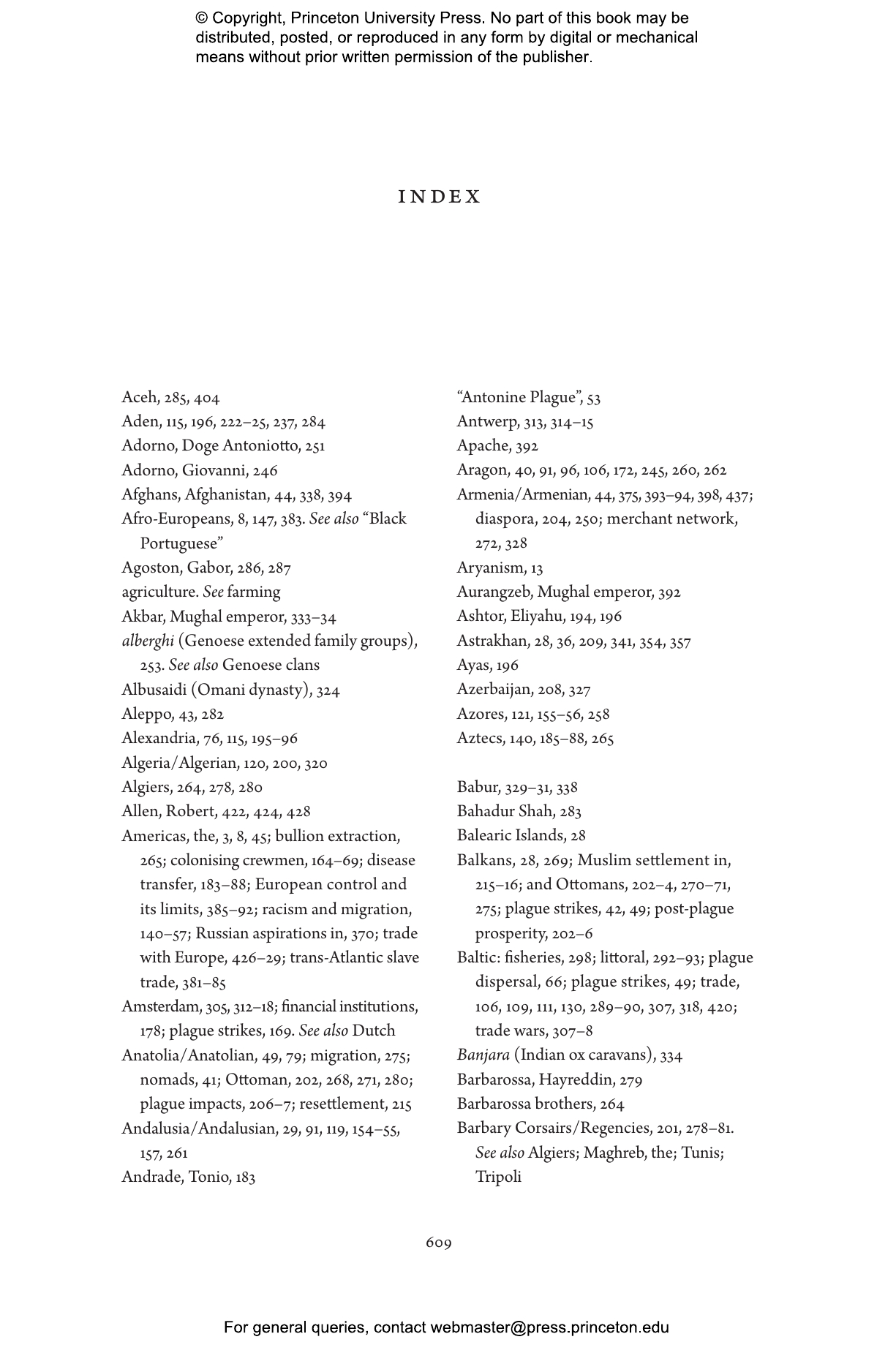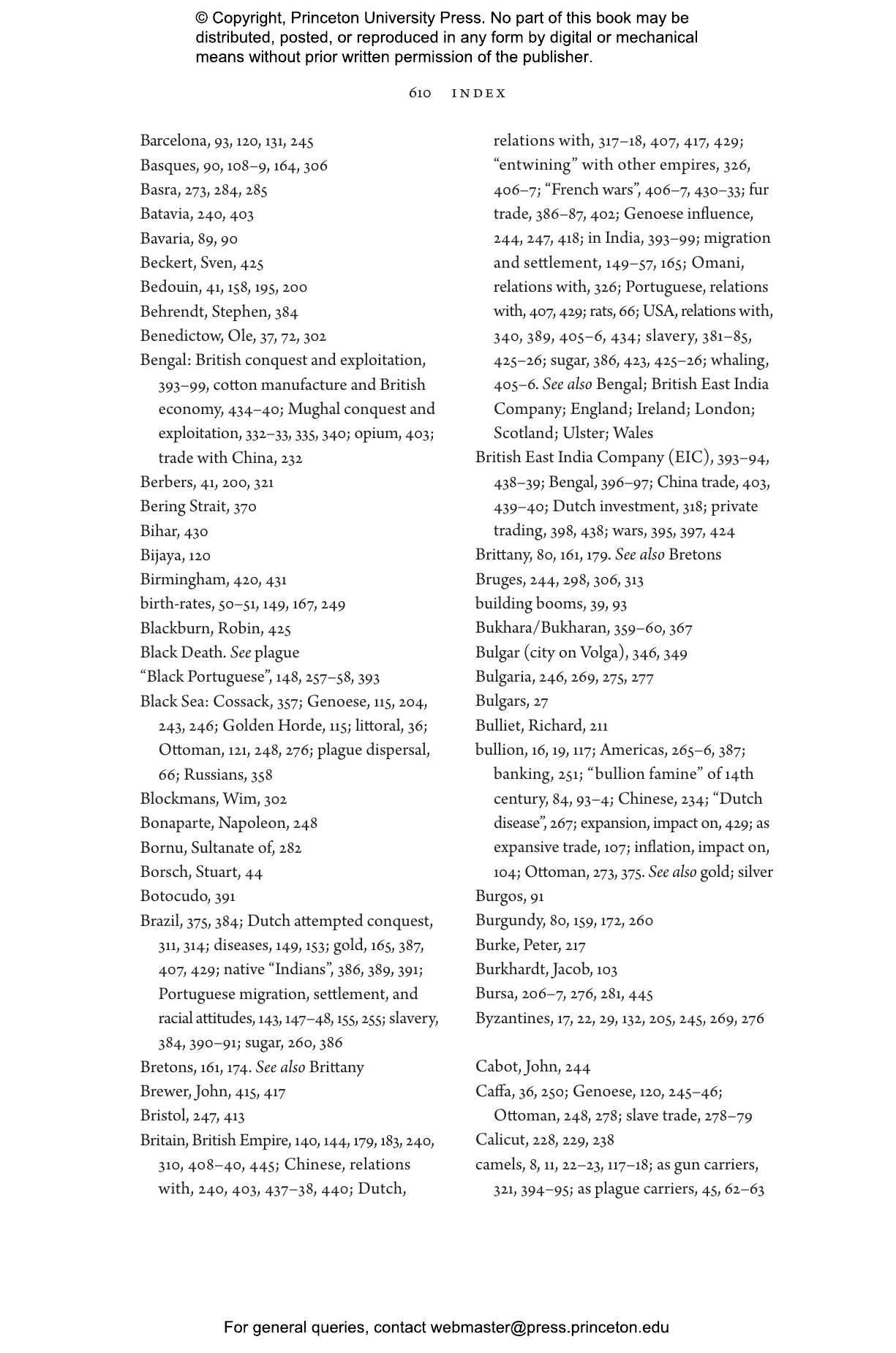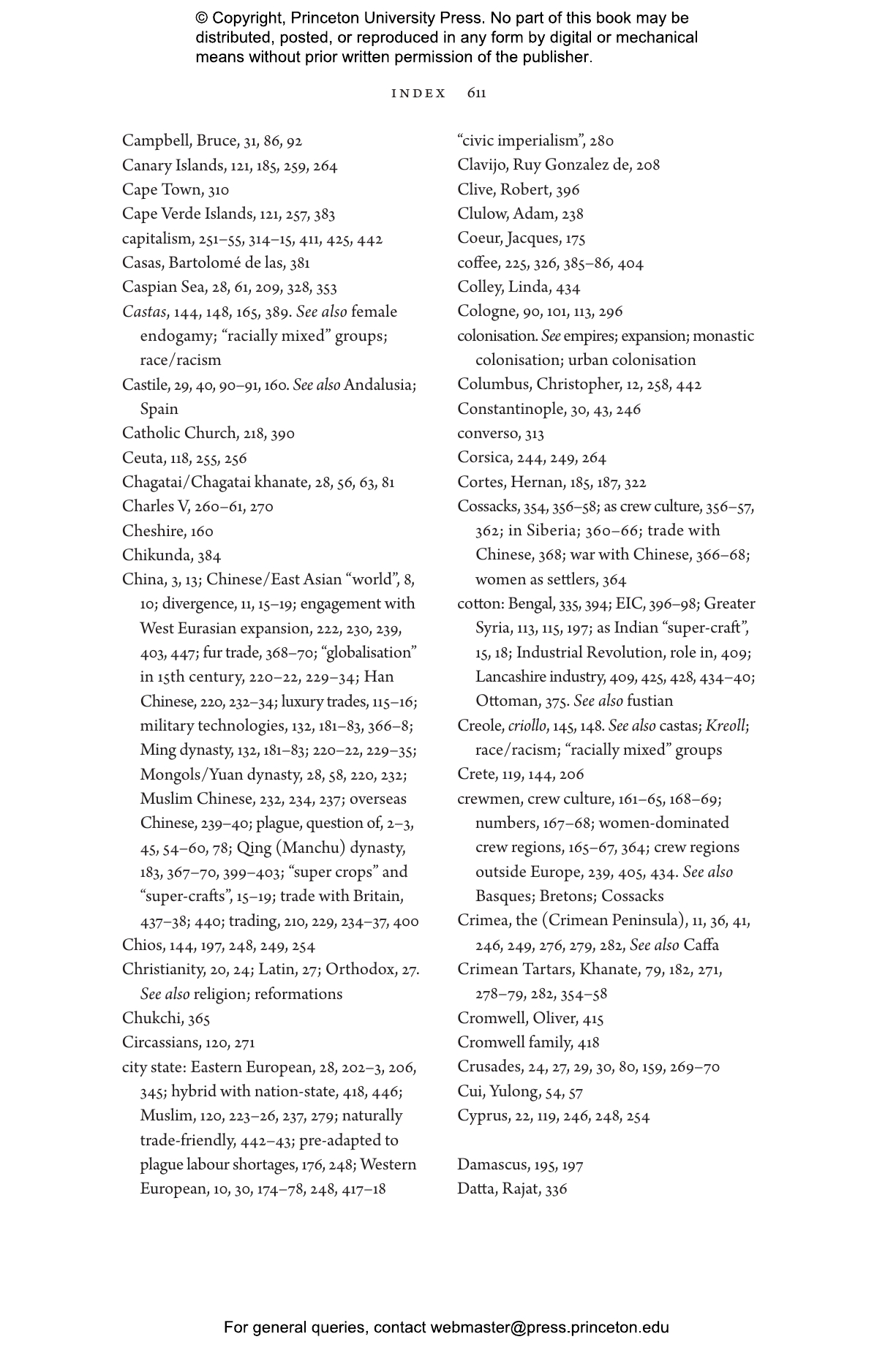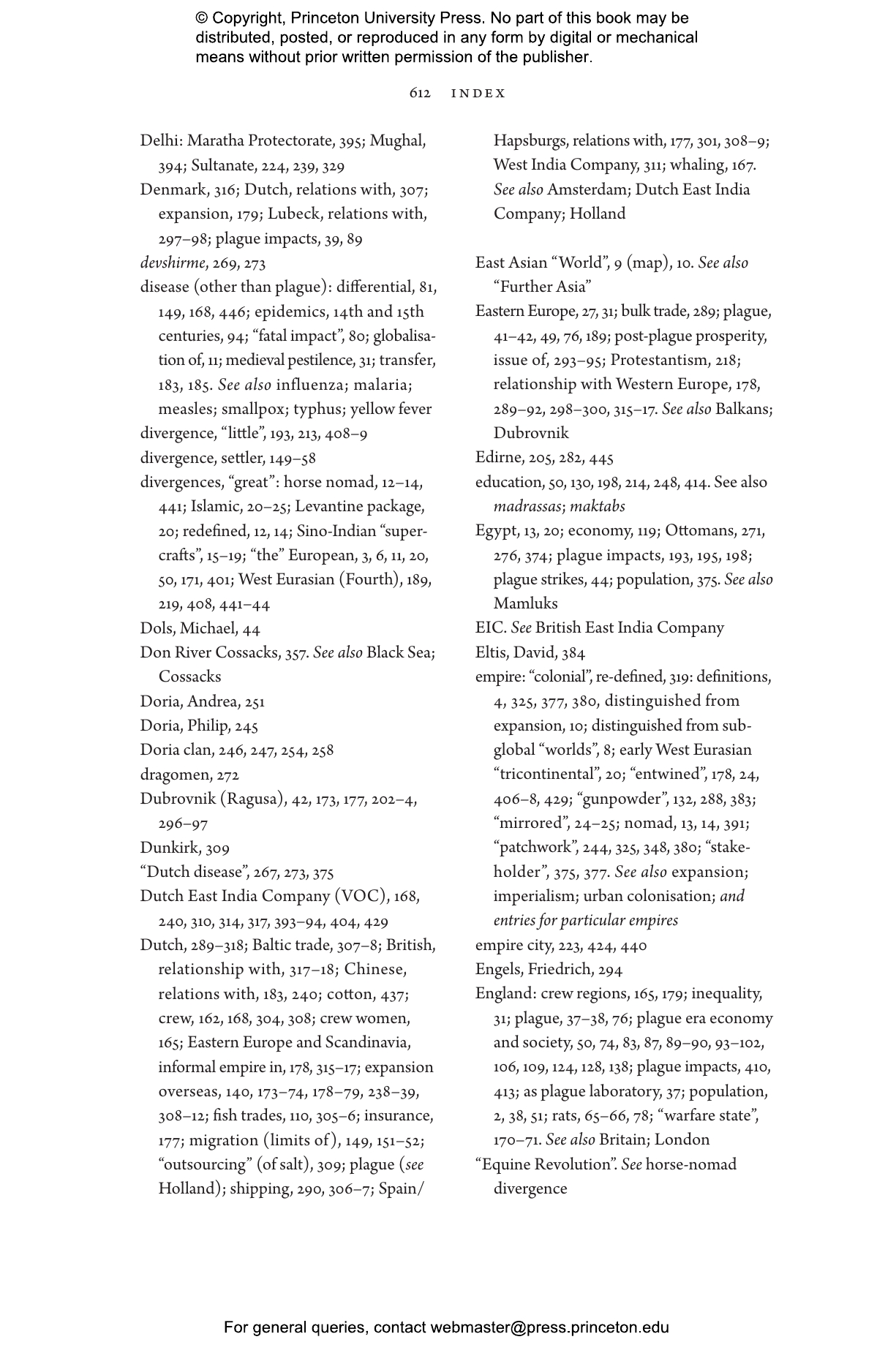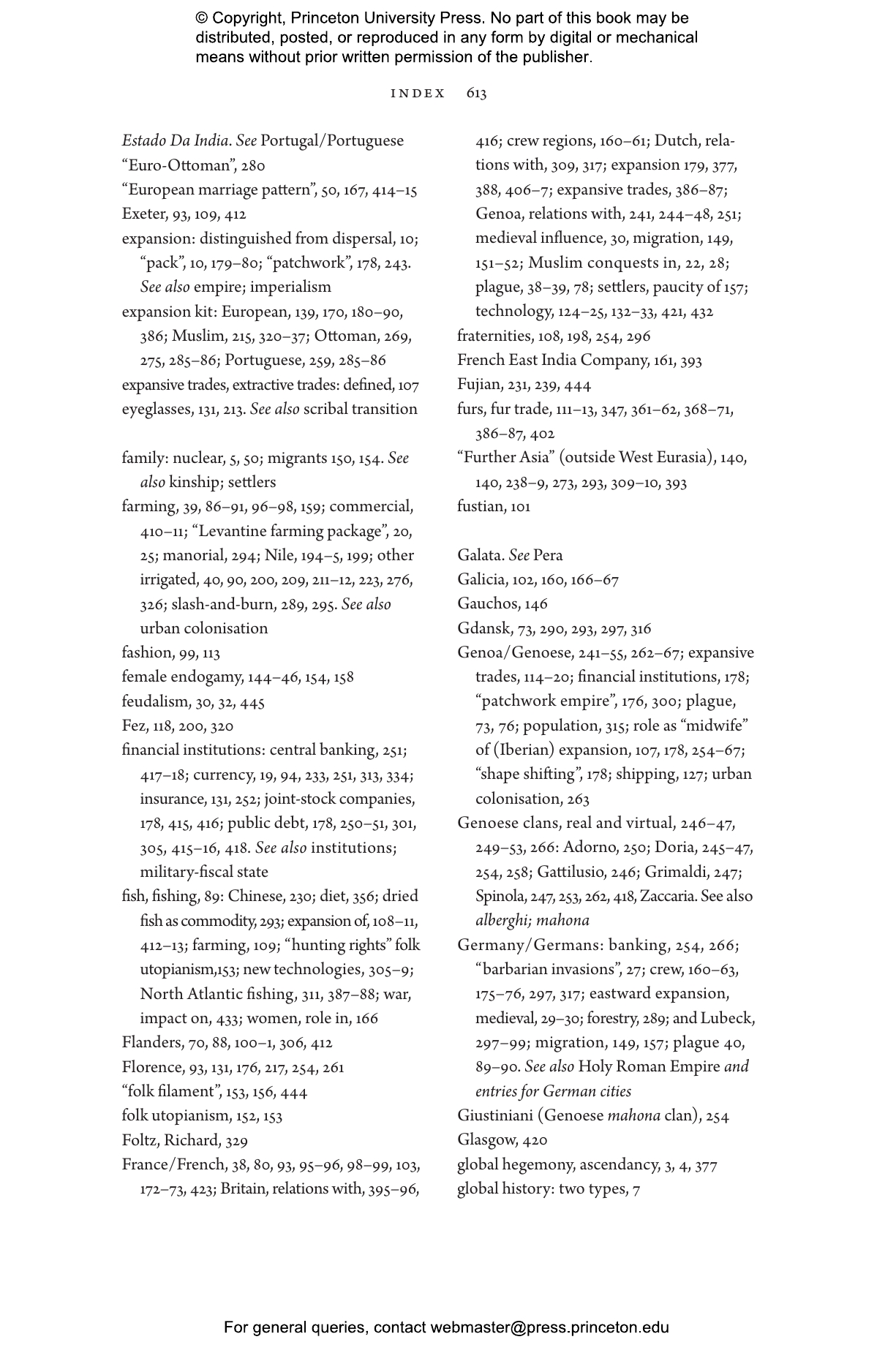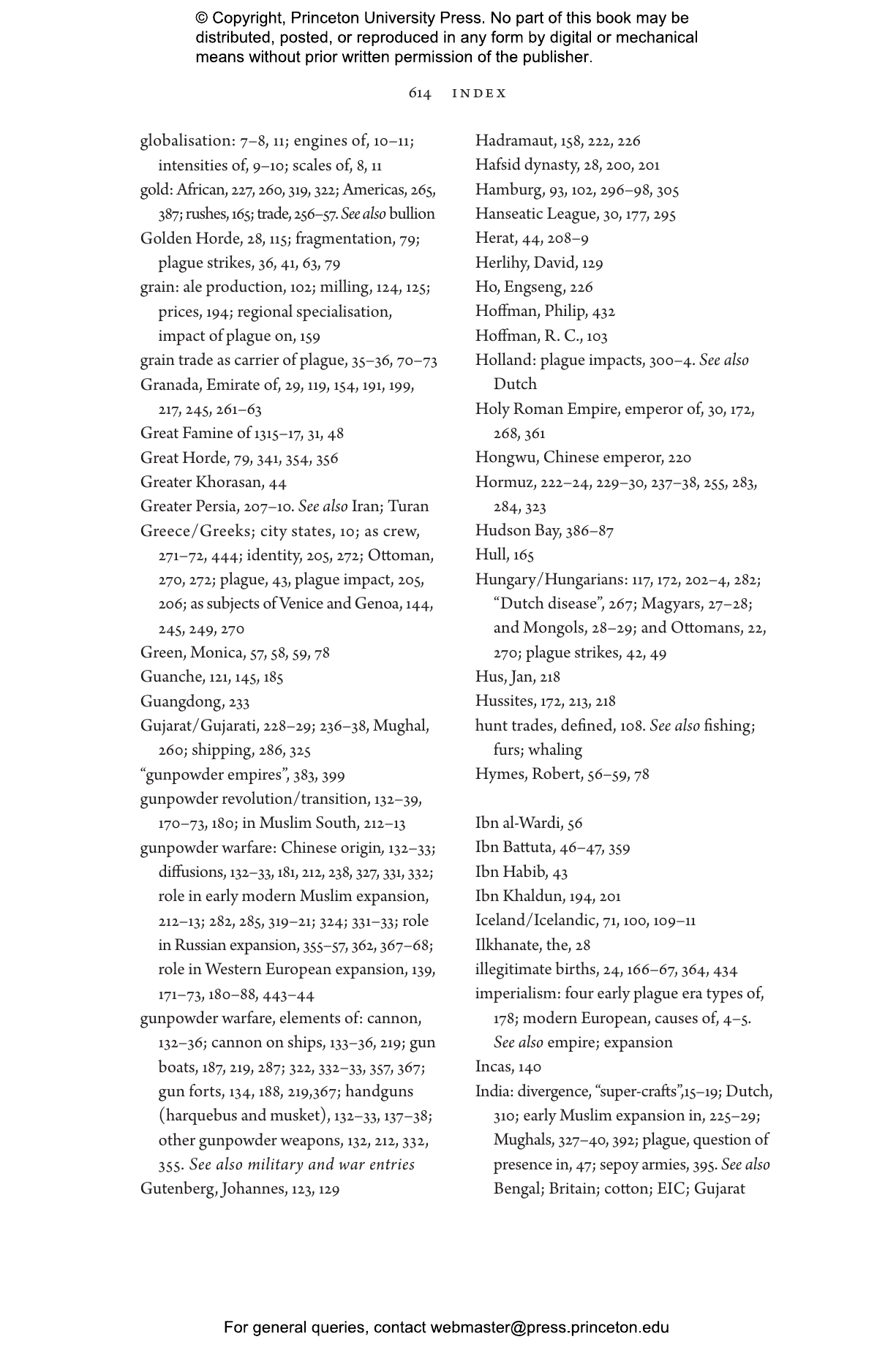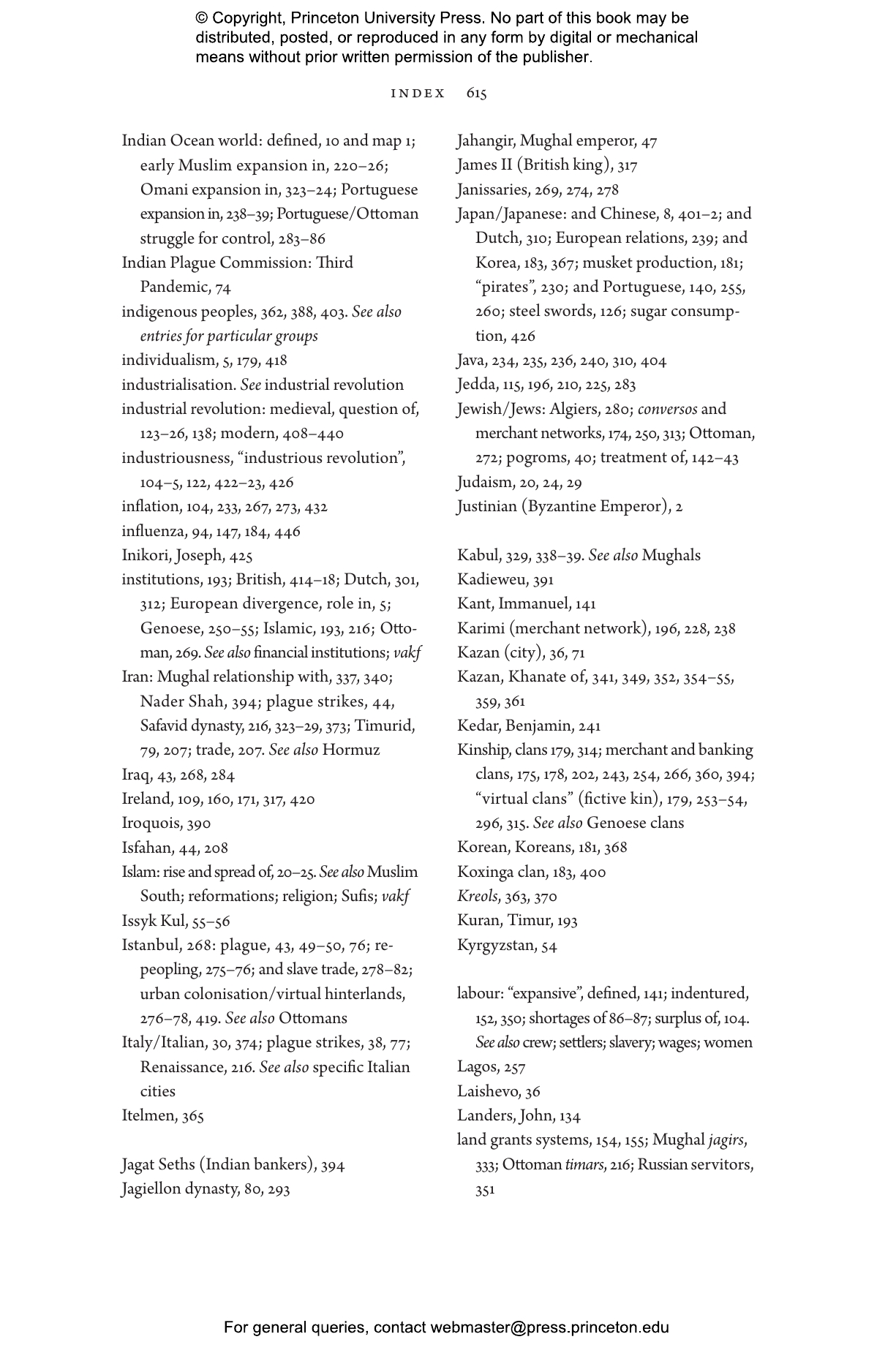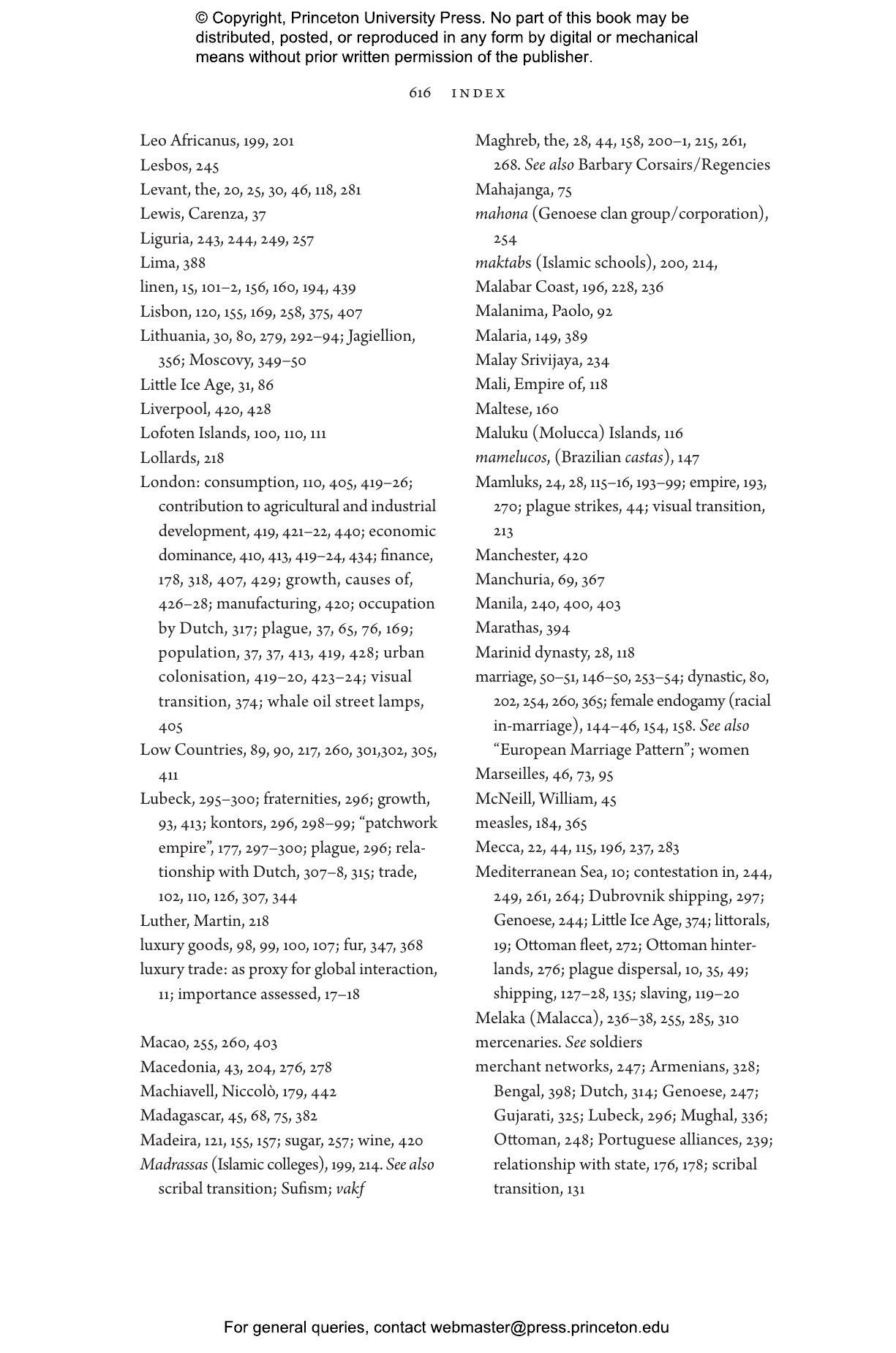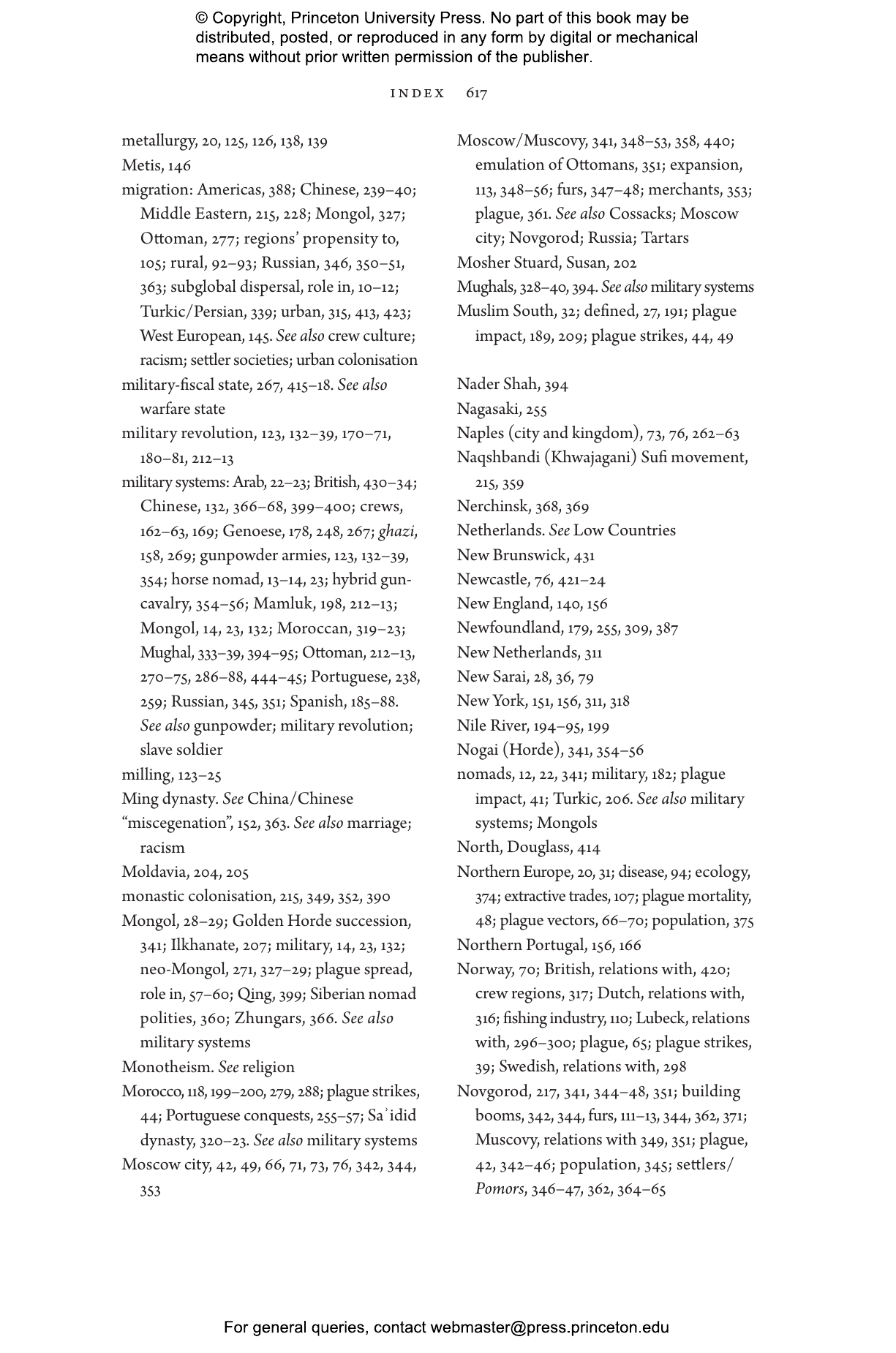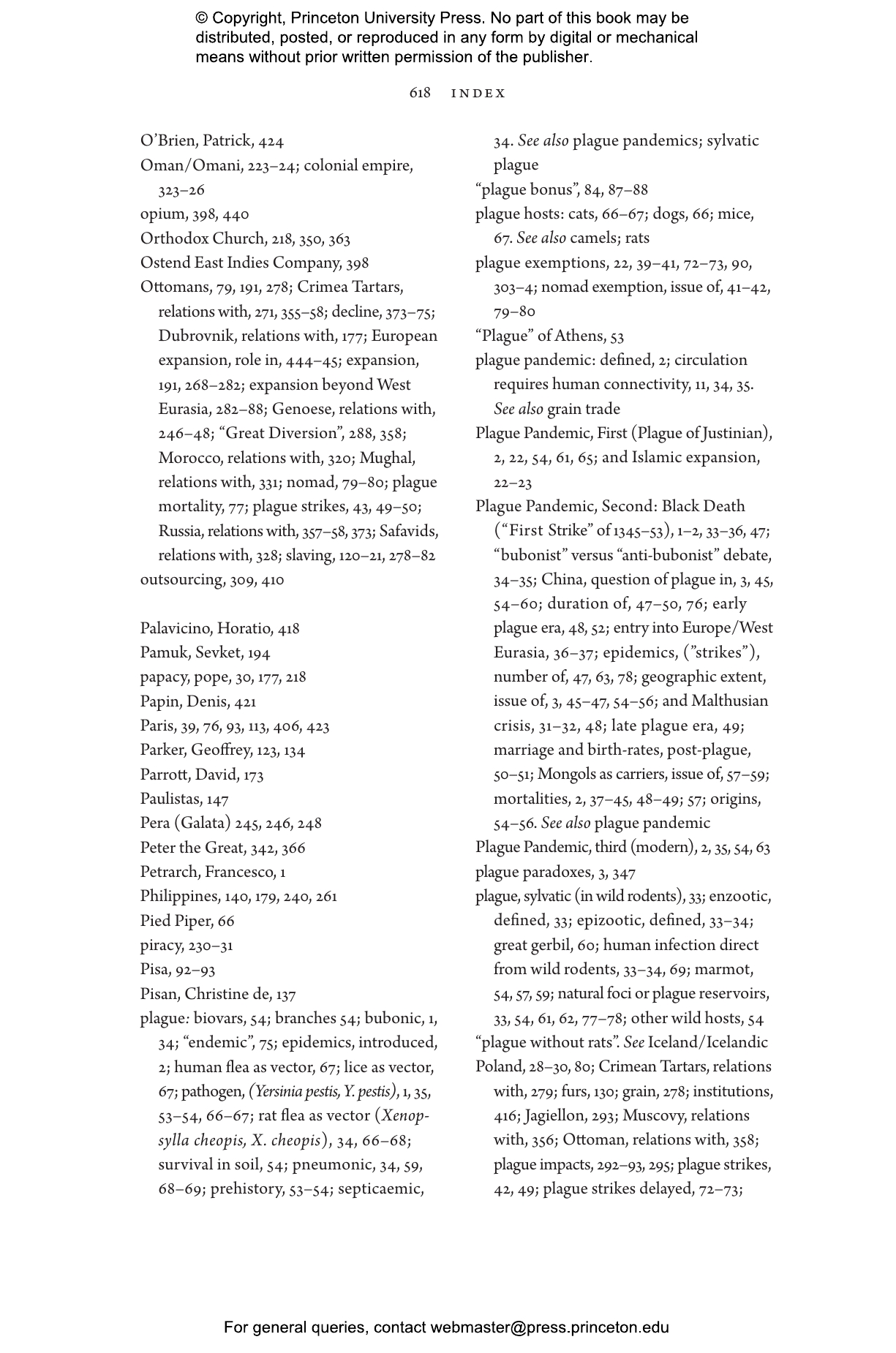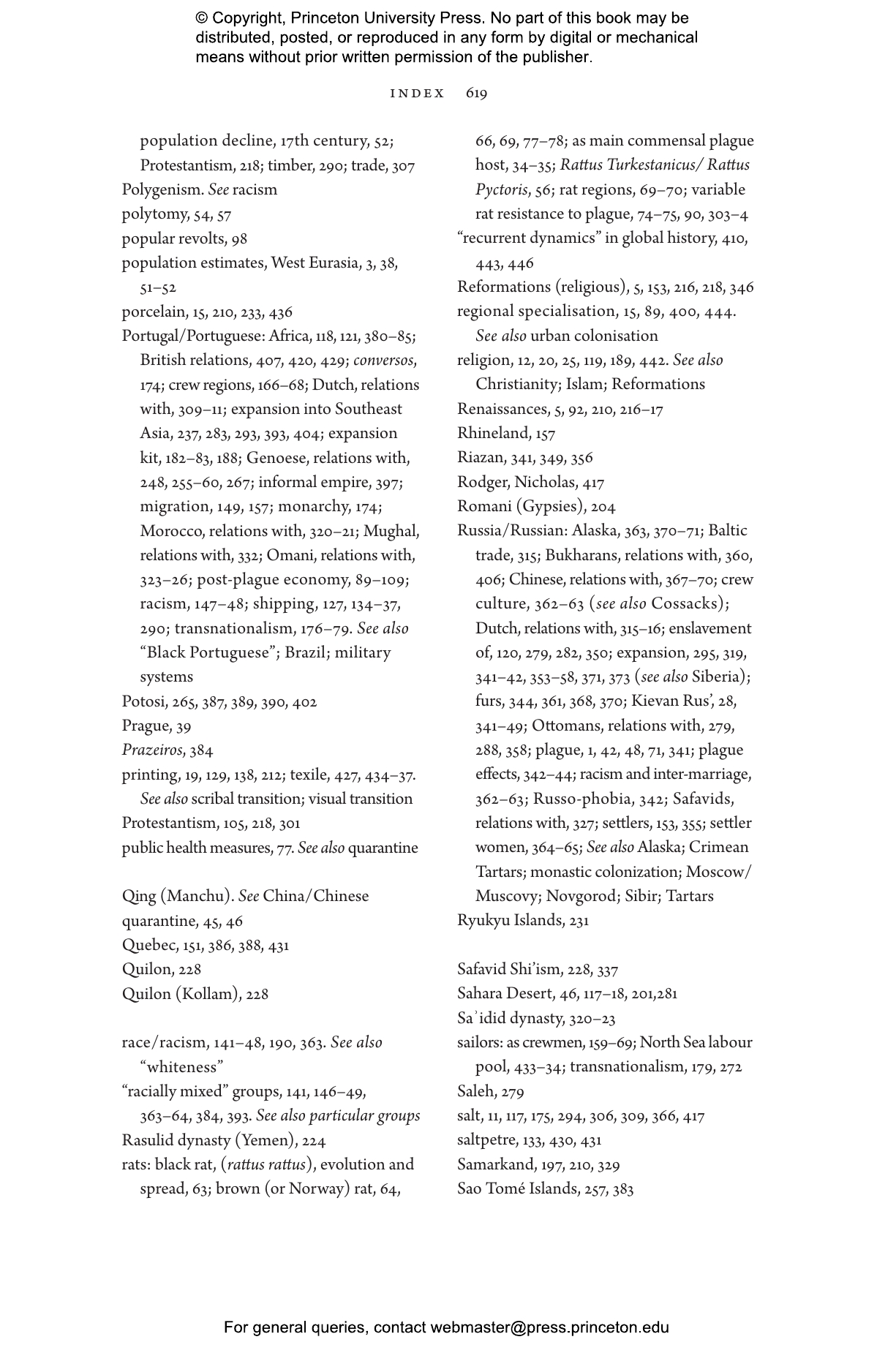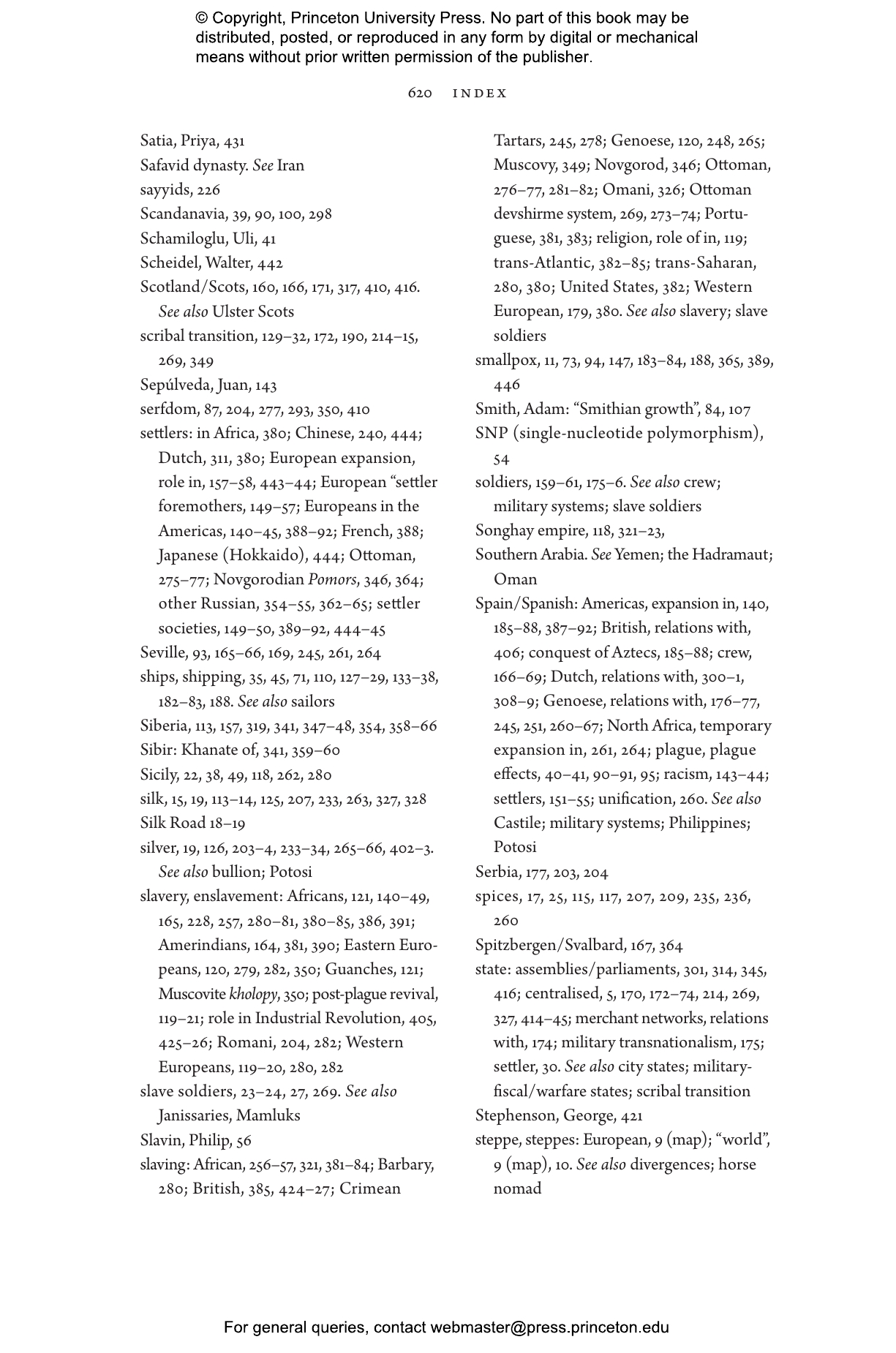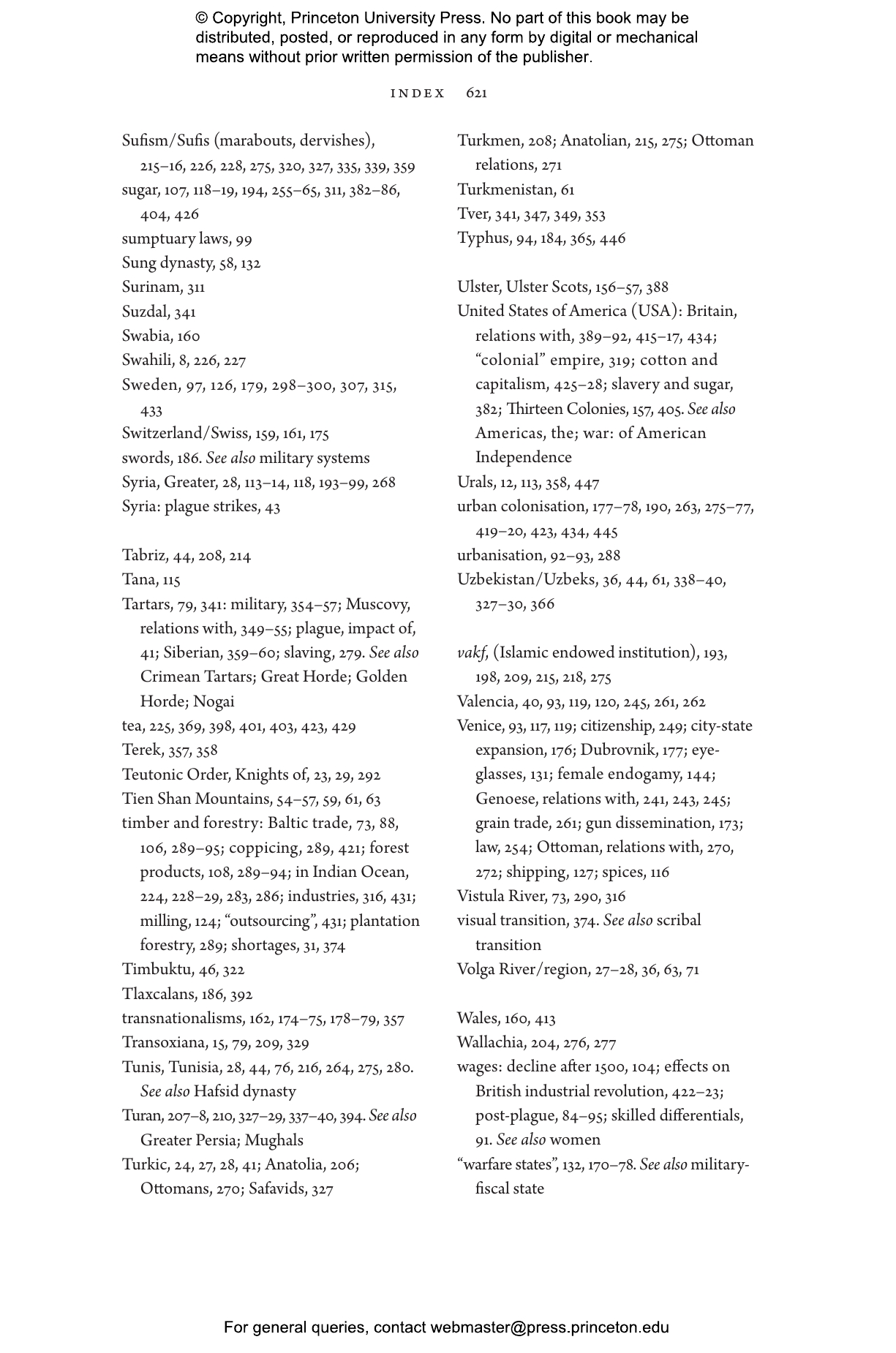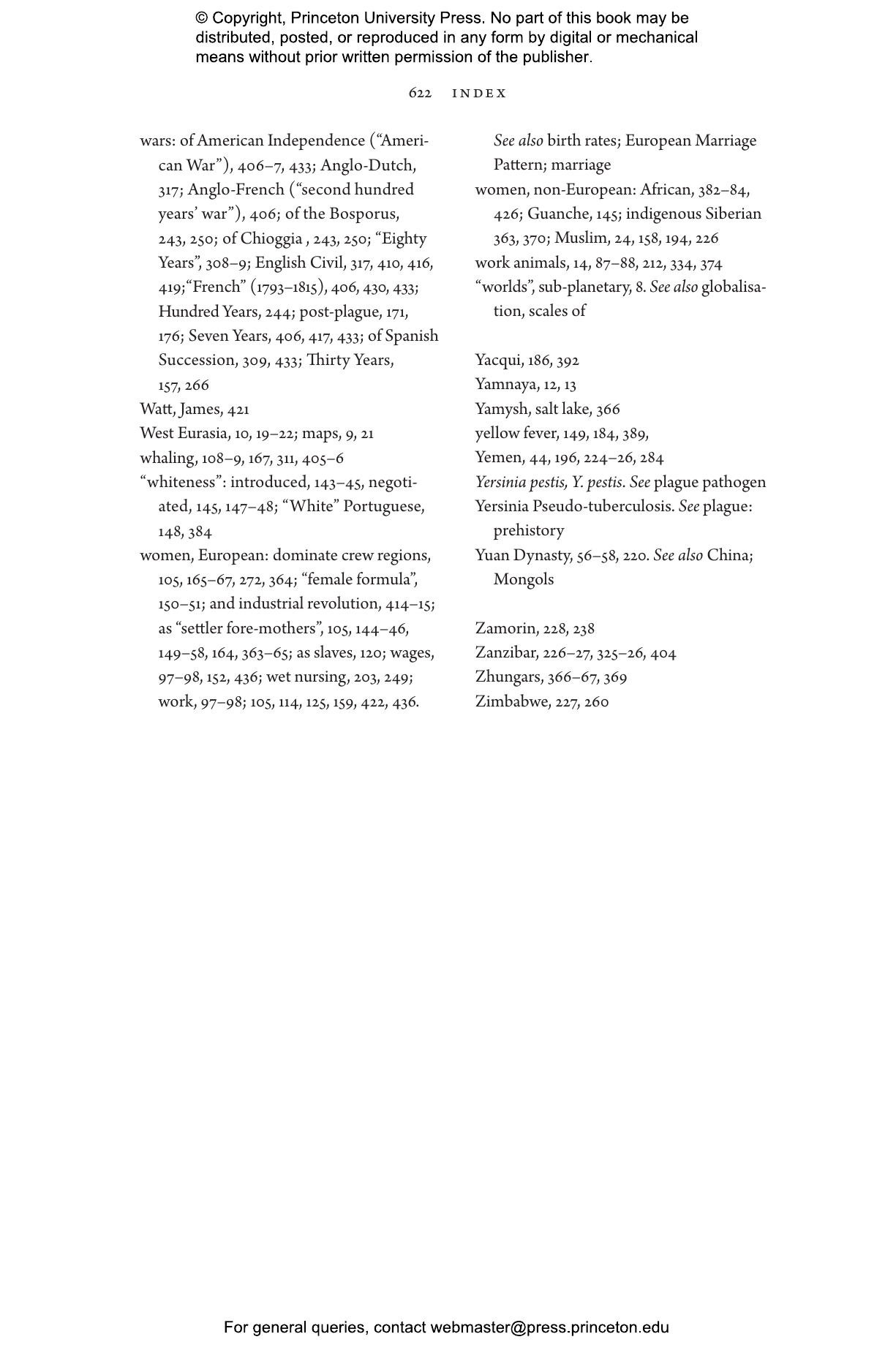In 1346, a catastrophic plague beset Europe and its neighbours. The Black Death was a human tragedy that abruptly halved entire populations and caused untold suffering, but it also brought about a cultural and economic renewal on a scale never before witnessed. The World the Plague Made is a panoramic history of how the bubonic plague revolutionized labour, trade, and technology and set the stage for Europe’s global expansion.
James Belich takes readers across centuries and continents to shed new light on one of history’s greatest paradoxes. Why did Europe’s dramatic rise begin in the wake of the Black Death? Belich shows how plague doubled the per capita endowment of everything even as it decimated the population. Many more people had disposable incomes. Demand grew for silks, sugar, spices, furs, gold, and slaves. Europe expanded to satisfy that demand—and plague provided the means. Labour scarcity drove more use of waterpower, wind power, and gunpowder. Technologies like water-powered blast furnaces, heavily gunned galleons, and musketry were fast-tracked by plague. A new “crew culture” of “disposable males” emerged to man the guns and galleons.
Setting the rise of Western Europe in global context, Belich demonstrates how the mighty empires of the Middle East and Russia also flourished after the plague, and how European expansion was deeply entangled with the Chinese and other peoples throughout the world.
Awards and Recognition
- A Spectator Book of the Year
- A Prospect Best History Book of the Year
- A FiveBooks Best Economic History Book of the Year
- Finalist for the PROSE Award in European History, Association of American Publishers
- Shortlisted for the Wolfson History Prize
- An Australian Most Anticipated Book
"A fantastic display of scholarship."—Talha Burki, The Lancet
"[A] sweeping revisionist history. . . . Rich in erudition and startling new insights, this fresh look at the impact of the Black Death upon world history is a must for history lovers and plague aficionados alike."—Library Journal
"A provocative and impressive history of an earth-shattering event."—Publishers Weekly
"[A] bold, tremendously researched work."—Jordan Michael Smith, Undark
"The World the Plague Made is worth reading simply as a narrative of these extraordinary events by a historian who combines command of detail with a grandiose vision of factors driving human expansion. Belich is sweeping in his range, provocative in his assertions and ambitious in his conceptions. His writing is full of colourful metaphors, unexpected turns of phrase and elegant put-downs of the many scholars who lack the imagination to share his insights."—Jonathan Sumption, Literary Review
"Sweeping, ambitious."—Peter Frankopan, The Spectator
"There is much to learn from this carefully considered book."—Peter Sarris, The Critic
"The World the Plague Made convincingly demonstrates that the Black Death influenced many aspects of human life. In short, it is global history."—Okori Uneke, International Social Science Review
"Belich draws on a vast array of bang-up-to-date material with the latest historical research, from plague pathogens to the role of war in centralising the early modern and modern state. The ride is a provocative and often exhilarating one. . . . Belich asks profound questions and does so with considerable elan."—Peter Frankopan, Prospect
"Terribly interesting and educational. . . . [A] fascinating book. It obviously comes recommended to students of the history of infectious disease, but also to readers receptive to the idea that history can be decisively shaped by curveballs thrown by nature."—Leon Vlieger, Inquisitive Biologist
"Packed with extensive and detailed information. . . .The World the Plague Made is a monumental book that will be required reading for anyone interested in the transition to modernity and it offers much food for thought about the methodology of ‘global history’ and history over a longue durée."—Justine Firnhaber-Baker, History Today
"Deeply-researched and erudite."—Sheldon Kirshner, The Times of Israel
"James Belich is one of our absolutely necessary historians; his lens is wide as the world itself."—Geordie Williamson, The Australian
"Meticulously researched."—Ann G. Carmichael, Journal of Interdisciplinary History
"Belich covers the immediate, devastating impact of [the Black Death] and its medium- and long-term effects on the economic and social order. He displays careful regard for the different experiences of countries and regions in Europe and beyond. . . . The World the Plague Made may be the best or most comprehensive work on the Black Death and its aftermath to date."—Jeffrey Mazo, Survival
"The World the Plague Made: The Black Death and the Rise of Europe sweeps across five centuries with extraordinary breadth and depth to answer one of history’s biggest questions: what caused Europe’s rise to global hegemony and its 'great divergence' from the rest of Eurasia in terms of
economic development by the 19th century? . . . Belich makes a persuasive case for the mutually
beneficial relationship between the big picture generalist and the thematic, regional, or chronological specialist."—Graeme Thompson, Dorchester Review
“A truly major piece of historical writing and revisionism.”—Linda Colley, author of The Gun, the Ship, and the Pen: Warfare, Constitutions, and the Making of the Modern World
“A work of magisterial ambition, magisterially fulfilled.”—Tom Holland, author of Dominion: The Making of the Western Mind
“The great plague of the fourteenth century reshaped human existence. Drawing on a wealth of sources, James Belich shows brilliantly that the globe was reshaped by the effects of the terrible disease, from economic relations to the rise of Europe to hegemony. This is global history at its most serious and thrilling.”—Rana Mitter, University of Oxford
“In this learned and lucid book, Belich turns his remarkable powers of synthesis and insight to the long shadow of the Black Death. He traces its rippling effects in every direction, finding impacts on developments as disparate as naval warfare and printing, all in support of a provocative central thesis linking the plague disaster to the rise of modern Europe.”—J. R. McNeill, coauthor of The Great Acceleration: An Environmental History of the Anthropocene since 1945
